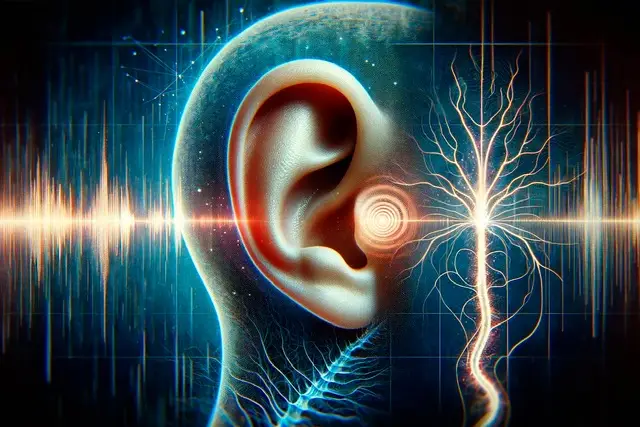If you’ve ever noticed a persistent ringing, buzzing, or humming sound in your ears when no external noise is present, you may be experiencing tinnitus. This condition affects millions of Americans, and while it is not a disease on its own, it can be a sign of changes within your hearing health. Understanding what tinnitus is and why it happens can help you manage symptoms and know when to seek professional support.
What Is Tinnitus?
Tinnitus is the perception of sound in the ears or head without an external source. For some, the sound may resemble ringing. Others describe it as humming, buzzing, whooshing, or even clicking. The volume and pitch of ringing or buzzing can vary from person to person. Some individuals notice it only in quiet environments, while others experience it constantly.
Common Causes of Tinnitus
Although the ringing can feel mysterious, it usually has an underlying cause. The most common reasons include:
- Noise exposure – Prolonged exposure to loud sounds, such as concerts, heavy machinery, or headphones at high volume, can damage the delicate hair cells in the inner ear, leading to tinnitus.
- Age-related hearing loss – As we age, the natural wear and tear on the inner ear often brings on both hearing loss and tinnitus.
- Earwax buildup – Excess earwax can block the ear canal, creating pressure and irritation that trigger tinnitus.
- Medical conditions – High blood pressure, diabetes, head or neck injuries, and temporomandibular joint (TMJ) issues may all contribute to tinnitus.
- Medications – Certain prescriptions, known as ototoxic drugs, list tinnitus as a possible side effect.
Since many factors can play a role, it’s important to consult a hearing specialist who can evaluate your symptoms.
Why Does Tinnitus Happen?
Researchers believe ringing or buzzing results from changes in how the brain processes sound. When the inner ear is damaged or not transmitting sound properly, the brain attempts to fill in the missing information. This overactivity in the auditory system produces the phantom sounds people experience as tinnitus.
In some cases, ringing sounds may also be linked to stress, fatigue, or poor circulation. Because it often develops alongside hearing loss, many patients don’t realize the two conditions are connected.
Living with Tinnitus
Although there is no single cure, several strategies can make symptoms easier to manage. Hearing specialists often recommend:
- Prescription hearing aids with tinnitus-masking features
- Sound therapy to reduce the contrast between tinnitus and silence
- Relaxation techniques such as deep breathing, meditation, or yoga
- Lifestyle adjustments like reducing caffeine, managing stress, and protecting your ears from loud noise
By combining these approaches, many people experience significant relief.
When to Seek Help
If you have ringing that lasts more than a week, worsens over time, or affects your sleep and concentration, it’s time to seek professional care. A hearing evaluation at Northumberland Hearing Center can determine whether tinnitus is linked to hearing loss or another condition. With the right support, you can regain control over your daily life and reduce the impact on your hearing.
Final Thoughts
Tinnitus can feel frustrating, but understanding why it happens is the first step toward relief. Whether caused by noise exposure, age, or health conditions, help is available. At Northumberland Hearing Center, our hearing specialists are here to provide guidance, personalized solutions, and the reassurance you deserve. For more information, visit American Tinnitus Association.



